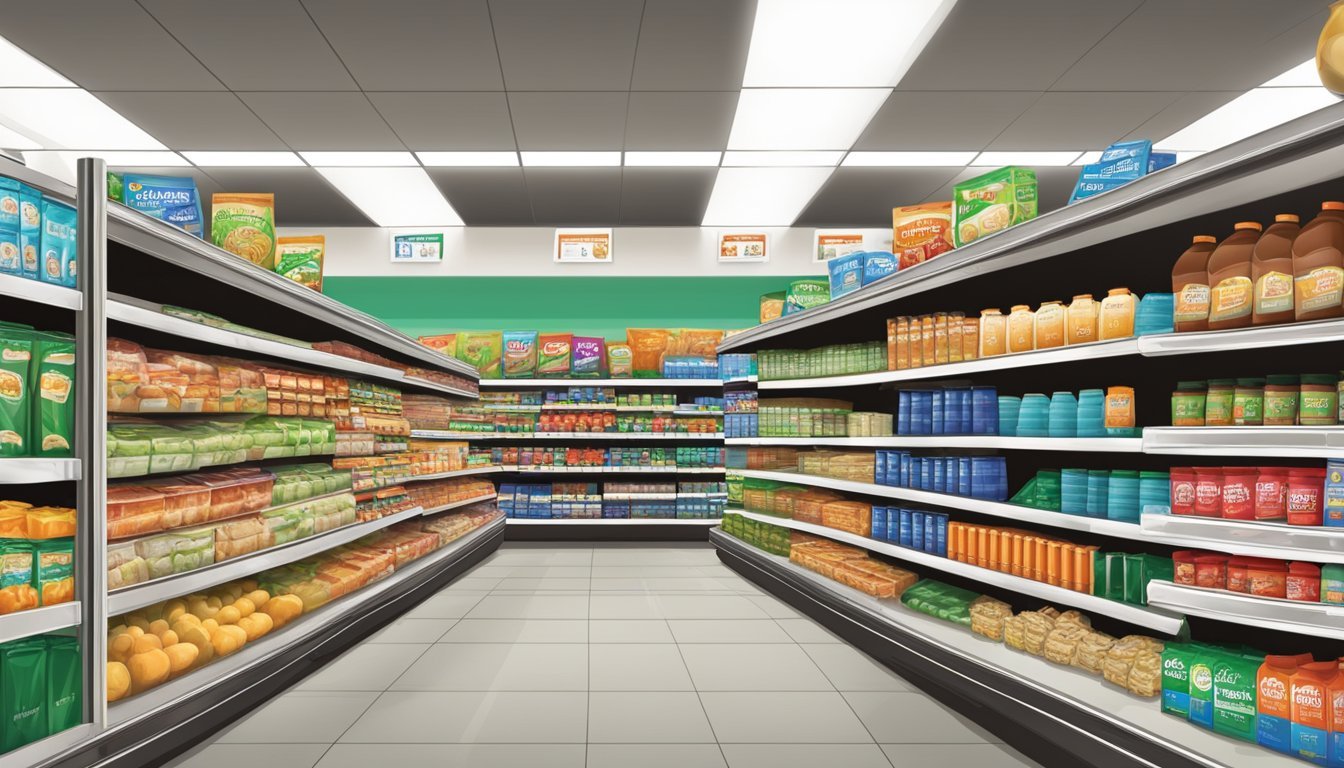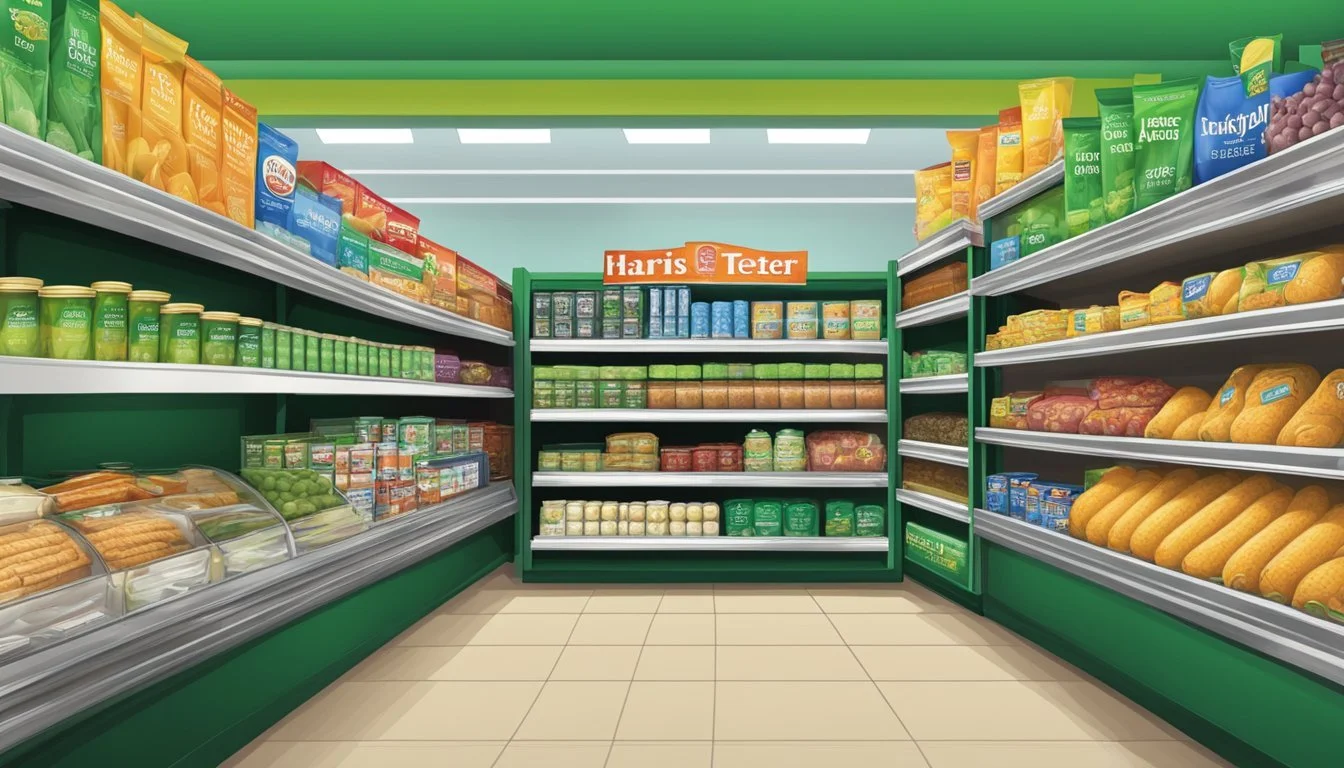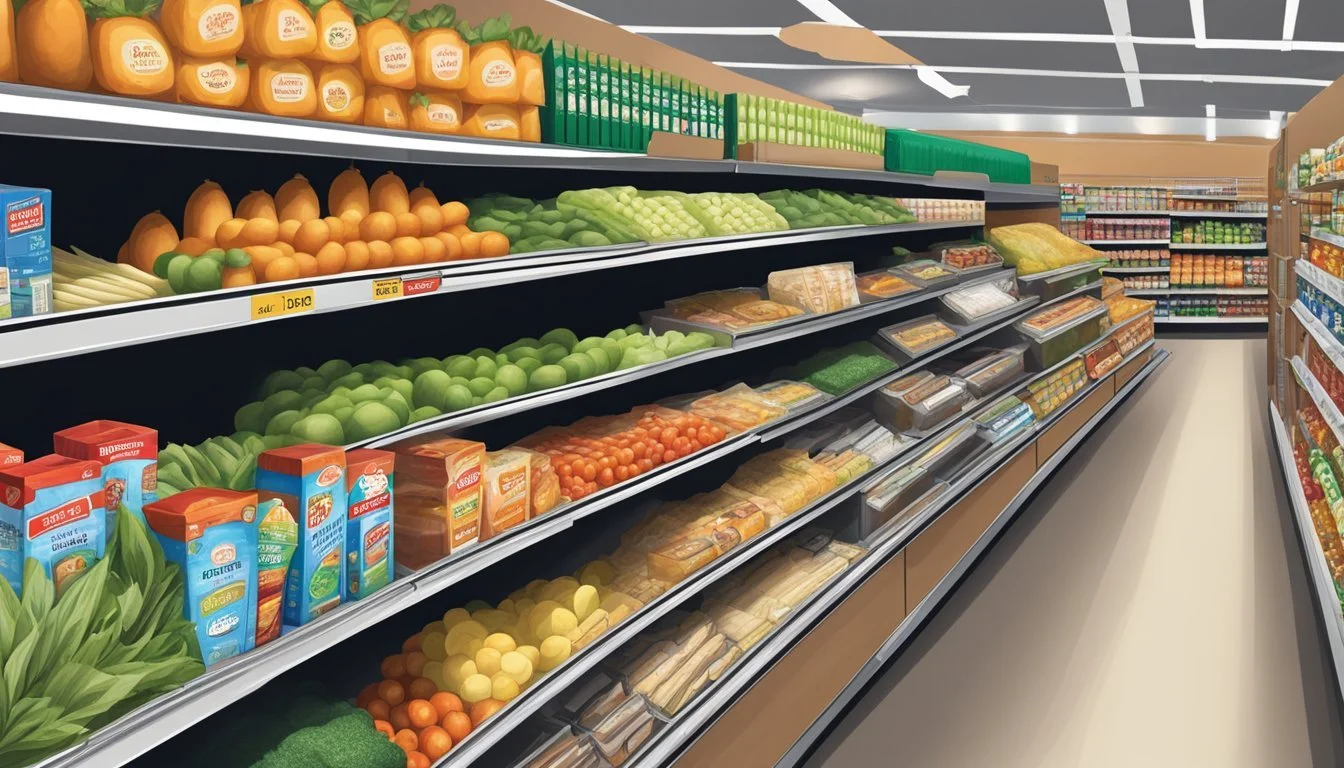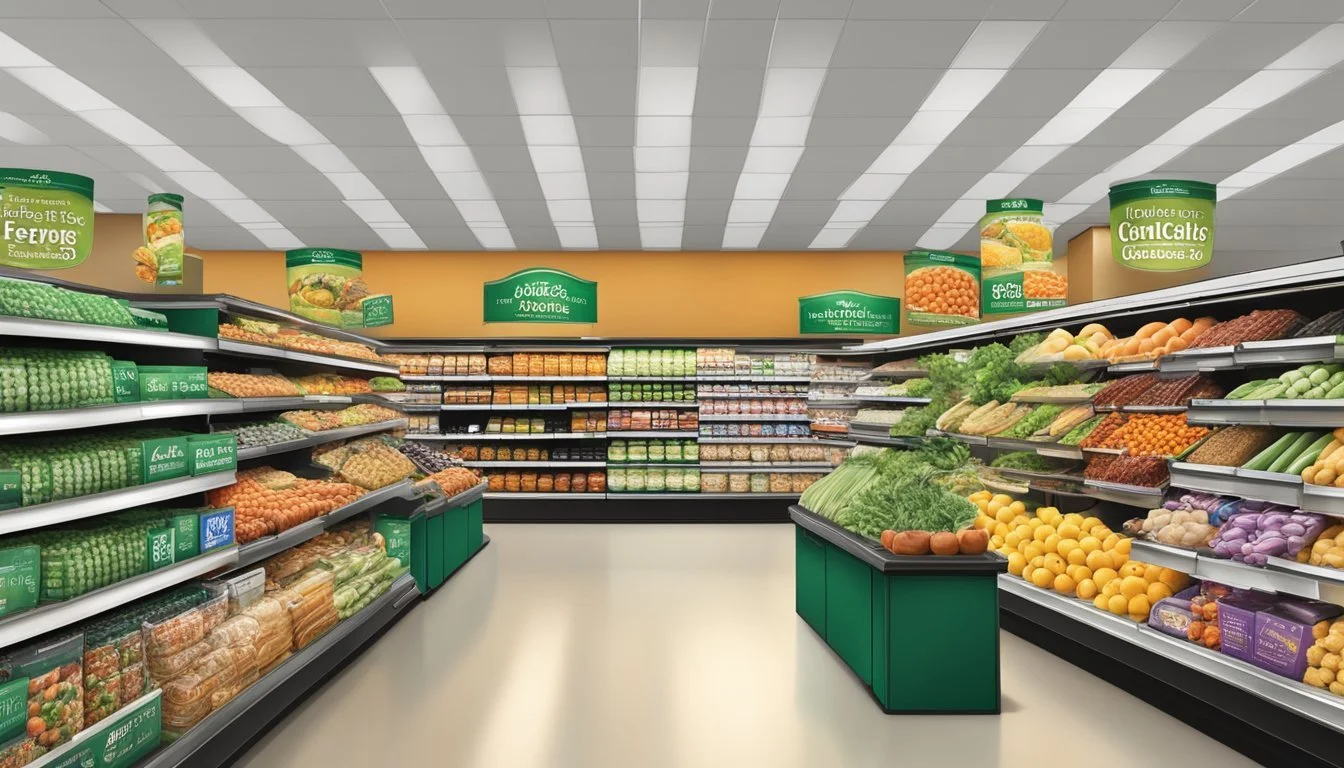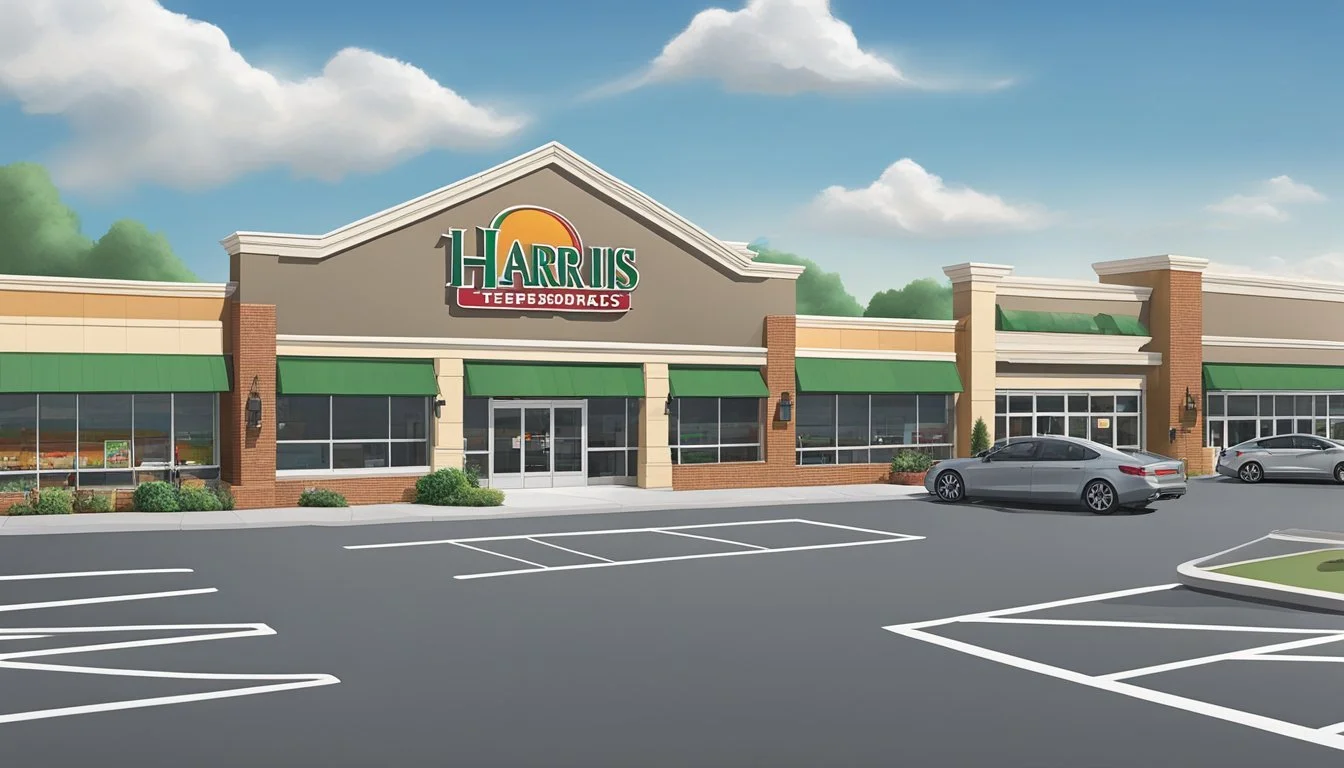Is Harris Teeter Cheaper Than Lucky Supermarkets?
A price comparison of two major grocery chains
Harris Teeter and Lucky Supermarkets are two popular grocery chains that cater to different regions of the United States. Many customers wonder which store offers better value for their money. While Harris Teeter generally provides competitive prices, it is difficult to make a direct comparison with Lucky Supermarkets due to their limited geographical overlap.
Harris Teeter operates primarily on the East Coast, with locations in states like North Carolina, Virginia, and Maryland. The supermarket chain is known for its quality products and customer service. Lucky Supermarkets, on the other hand, mainly serves Northern California. This geographical separation makes it challenging for most shoppers to compare prices between the two stores directly.
When considering price comparisons among supermarkets, it's important to note that factors such as location, local competition, and regional supplier relationships can significantly influence pricing strategies. Customers interested in finding the best deals may need to compare Harris Teeter or Lucky Supermarkets with other local grocery options in their respective areas.
Company Overviews
Harris Teeter and Lucky Supermarkets are two distinct grocery chains operating in different regions of the United States. Both offer a range of products and services to meet customers' shopping needs.
Harris Teeter
Harris Teeter is a prominent supermarket chain primarily serving the southeastern and mid-Atlantic United States. Founded in 1960, it has grown to operate over 250 stores across eight states and Washington D.C.
The Kroger Company acquired Harris Teeter in 2014, strengthening its position in the competitive grocery market. Harris Teeter is known for its focus on customer service and quality products.
The chain offers a mix of national brands and private label items. Its stores typically feature full-service departments, including deli, bakery, and pharmacy services.
Harris Teeter has a strong presence in North Carolina and Virginia. It competes with other regional chains like Wegmans in some East Coast markets.
Lucky Supermarkets
Lucky Supermarkets is a grocery chain primarily operating in Northern California. It was founded in 1935 and has undergone several ownership changes over the years.
The chain currently operates around 70 stores, mostly in the San Francisco Bay Area. Lucky Supermarkets focuses on providing affordable groceries and everyday essentials to its customers.
Lucky's stores offer a variety of departments, including produce, meat, and bakery sections. The chain emphasizes value pricing and weekly specials to attract budget-conscious shoppers.
Unlike Harris Teeter's East Coast focus, Lucky Supermarkets serves a West Coast market. It competes with other California-based chains and national retailers in its operating area.
Price Analysis
Harris Teeter and Lucky Supermarkets employ distinct pricing strategies that impact shoppers' wallets. A closer look at their general approaches, product prices, and discount tactics reveals key differences in affordability.
General Pricing Strategies
Harris Teeter positions itself as a mid-range to upscale grocery chain, focusing on quality and customer service. This approach often results in slightly higher everyday prices compared to some competitors. The store emphasizes its VIC (Very Important Customer) card program, which offers exclusive savings to members.
Lucky Supermarkets, on the other hand, targets budget-conscious shoppers. They aim to provide competitive prices across their product range. Lucky's strategy involves keeping operational costs low to pass savings on to customers.
Comparison of Product Prices
When examining specific product categories, Harris Teeter tends to have higher price points on many items. Fresh produce, meats, and specialty goods often come at a premium. However, their store-brand products can offer good value.
Lucky Supermarkets generally maintains lower prices across most categories. Their focus on affordability is evident in staple items like bread, milk, and eggs. Generic and store-brand options at Lucky are particularly budget-friendly.
Category Harris Teeter Lucky Supermarkets Produce Higher Lower Meats Higher Lower Dairy Moderate Lower Pantry Moderate Lower
Sales and Discount Strategies
Harris Teeter's VIC card program is central to its discount strategy. Cardholders access weekly specials, personalized offers, and fuel points. The store also runs periodic "Super Doubles" events, doubling coupons up to $2 in value.
Lucky Supermarkets relies on everyday low prices rather than extensive loyalty programs. They offer weekly specials and digital coupons through their app. Lucky's circulars feature numerous sale items, allowing shoppers to save without needing a membership card.
Both chains use loss leaders - deeply discounted popular items - to attract customers. Harris Teeter's sales can sometimes beat Lucky's regular prices on specific products.
Product and Brand Comparison
Harris Teeter and Lucky Supermarkets offer distinct product ranges and quality levels across various categories. Their offerings differ in freshness, variety, and pricing, particularly for store brand items.
Produce and Fresh Food
Harris Teeter emphasizes high-quality produce with a wide selection of organic fruits and vegetables. Their spinach and leafy greens are notably fresh. Lucky Supermarkets provides a more limited organic range but offers competitive prices on conventional produce.
Both chains source locally when possible, but Harris Teeter's produce section is typically larger with more specialty items. Lucky Supermarkets focuses on staple fruits and vegetables at budget-friendly prices.
Harris Teeter's meat department features premium cuts and a variety of marinated options. Lucky Supermarkets offers standard meat selections at lower price points.
Packaged and Dry Goods
Harris Teeter's store brand, "Harris Teeter," covers a wide range of packaged goods. These products often match or exceed national brand quality at lower prices. Lucky Supermarkets' house brand offers fewer options but focuses on everyday staples.
Harris Teeter stocks a broader selection of specialty and gourmet items. Lucky Supermarkets provides a more basic assortment of packaged goods, prioritizing popular brands and value options.
Gluten-free and international food sections are more extensive at Harris Teeter. Lucky Supermarkets offers these products but with less variety.
Dairy and Frozen Foods
Harris Teeter's dairy section includes a wide range of organic and specialty milk options, artisanal cheeses, and plant-based alternatives. Lucky Supermarkets offers standard dairy products with fewer premium choices.
In frozen foods, Harris Teeter provides more ready-to-eat meals and gourmet options. Lucky Supermarkets focuses on family-sized portions and budget-friendly frozen vegetables.
Both chains offer store-brand frozen items, but Harris Teeter's selection is typically larger and includes more health-conscious options.
Bakery and Prepared Foods
Harris Teeter's in-store bakery produces a variety of fresh breads, pastries, and custom cakes. Their prepared foods section includes a hot bar, salad bar, and made-to-order sandwiches.
Lucky Supermarkets generally has a smaller bakery department with a focus on everyday bread and simple desserts. Their prepared foods section is more limited, often featuring pre-packaged meals and basic deli offerings.
Harris Teeter emphasizes gourmet and health-conscious prepared items. Lucky Supermarkets targets convenience and affordability in their prepared foods selection.
Customer Experience
Harris Teeter and Lucky Supermarkets prioritize customer satisfaction through their store environments, service quality, and checkout processes. Both chains aim to create positive shopping experiences, though they may differ in specific approaches and execution.
In-store Experience
Harris Teeter stores typically feature a clean, well-organized layout. The produce section often stands out with a wide selection of fresh fruits and vegetables. Aisles are spacious and clearly labeled, making it easy for customers to navigate. The stores usually have a pleasant ambiance with good lighting and temperature control.
Lucky Supermarkets also maintain tidy stores but may have a more compact layout. Their produce sections are generally well-stocked, though the variety might be less extensive than Harris Teeter's. Lucky's aisles tend to be narrower, which can feel cramped during busy times. Both chains offer a range of household items and diverse shopping categories to meet customers' needs.
Customer Service
Harris Teeter is known for its attentive customer service. Staff members are often readily available to assist shoppers with queries or product locations. The chain emphasizes employee training to ensure courteous and knowledgeable interactions.
Lucky Supermarkets also strive for good customer service, though experiences may vary by location. Their staff are generally helpful when approached, but customers might need to seek assistance more actively compared to Harris Teeter. Both chains typically have dedicated customer service desks for returns, exchanges, and special requests.
Checkout Efficiency
Harris Teeter invests in efficient checkout processes. Many stores offer self-checkout options alongside traditional cashier lanes. During peak hours, they often open additional registers to minimize wait times. The chain's loyalty program is integrated into the checkout process, allowing for seamless application of discounts and rewards.
Lucky Supermarkets' checkout efficiency can vary by location and time of day. They generally provide both cashier-operated and self-checkout options. Wait times might be longer during busy periods, but staff usually work to keep lines moving. Lucky's loyalty program is also typically easy to use at checkout, providing savings on various items.
Additional Services and Features
Harris Teeter and Lucky Supermarkets offer various services beyond basic grocery shopping. These features aim to enhance customer experience, provide value, and support local communities.
Membership Programs and Rewards
Harris Teeter's VIC (Very Important Customer) program allows shoppers to access exclusive discounts and digital coupons. Members earn fuel points on purchases, redeemable at participating fuel centers. The e-VIC program sends personalized offers via email.
Lucky Supermarkets provides a rewards program through their mobile app. Customers earn points on purchases, which can be redeemed for discounts on future shopping trips. The app also offers digital coupons and exclusive deals for members.
Both stores frequently run promotional events, such as double coupon days, to maximize savings for loyal customers.
Online Shopping and Delivery
Harris Teeter offers ExpressLane online shopping with curbside pickup or home delivery options. Customers can create shopping lists, view past purchases, and schedule pickups or deliveries at their convenience.
Lucky Supermarkets partners with Instacart for online ordering and delivery services. This allows customers to shop from home and receive groceries within hours.
Both retailers have user-friendly mobile apps that integrate with their online shopping platforms, making it easy for customers to manage orders on-the-go.
Community Involvement and Sustainability
Harris Teeter's Together in Education program supports local schools by donating a percentage of qualifying purchases to participating institutions. The company also focuses on reducing food waste through partnerships with food banks.
Lucky Supermarkets emphasizes sustainability through energy-efficient store designs and recycling initiatives. They support local food banks and community organizations through regular donation drives.
Both retailers prioritize offering locally sourced products, supporting regional farmers and producers. This commitment extends to their respective sustainability efforts, reducing carbon footprints and promoting eco-friendly practices in their operations.
Store Locations and Accessibility
Harris Teeter operates primarily in the southeastern United States. The chain has a strong presence in states like North Carolina, South Carolina, Virginia, and Maryland.
Lucky Supermarkets, on the other hand, is primarily located in Northern California. This regional focus limits direct competition between the two chains.
Harris Teeter stores are generally smaller than traditional supermarkets, which can facilitate quicker shopping trips. This compact layout may appeal to customers seeking convenience.
In terms of accessibility, Harris Teeter emphasizes customer service. They offer online shopping and delivery options in many locations, catering to those who prefer remote grocery shopping.
Lucky Supermarkets also provides online ordering and delivery services in their operating areas. This aligns with current consumer trends favoring digital shopping experiences.
Both chains face competition from larger national retailers like Kroger and Target. These competitors often have more extensive store networks and broader geographical reach.
Publix, another regional supermarket chain, competes with Harris Teeter in some southeastern markets. This adds to the competitive landscape in those areas.
Industry Comparisons
Harris Teeter and Lucky Supermarkets operate in different regions, making direct price comparisons challenging. Their pricing strategies and market positions vary based on local competition and consumer preferences.
Comparison to Other Grocery Chains
Harris Teeter generally positions itself as a higher-end grocery chain compared to discount retailers like Walmart and Aldi. Its prices tend to be higher than these budget-focused stores. However, Harris Teeter often offers competitive prices compared to other mid-range and premium chains like Safeway and Whole Foods.
Lucky Supermarkets, primarily operating in California, competes with regional chains like Safeway and Albertsons. Their pricing typically falls in the mid-range category, offering a mix of value and quality.
Both chains face increasing competition from online retailers like Amazon and discount chains expanding into new markets.
Market Position and Share
Harris Teeter has a strong presence in the southeastern United States, with over 230 stores across multiple states. The chain has built a reputation for quality products and customer service, targeting middle to upper-income consumers.
Lucky Supermarkets maintains a smaller footprint, focusing on the California market. As part of The Save Mart Companies, Lucky contributes to the parent company's market share in the competitive California grocery landscape.
Neither chain matches the national market share of giants like Walmart or Kroger, but they hold significant regional influence.
Consumer Perception and Ratings
Harris Teeter consistently receives positive ratings in consumer surveys. Customers appreciate its clean stores, wide product selection, and quality store-brand items. The chain's VIC (Very Important Customer) program is popular among shoppers.
Lucky Supermarkets garners mixed reviews. Some customers praise its competitive prices and local product offerings. Others note that store quality can vary by location.
In industry comparisons, Harris Teeter often ranks higher than Lucky Supermarkets in overall customer satisfaction. However, Lucky tends to score well in the value category, appealing to price-conscious shoppers.
Both chains face tough competition from highly-rated retailers like Trader Joe's and regional favorites such as H-E-B in Texas.
Regulatory and Standards Compliance
Harris Teeter and Lucky Supermarkets both adhere to strict regulatory standards set by the FDA and other governing bodies. These standards ensure food safety and quality for consumers.
Both chains implement rigorous product recall procedures when necessary. They promptly remove potentially unsafe items from shelves and notify customers of recalls.
Food handling and storage practices are closely monitored in both stores. Regular inspections verify compliance with health and safety regulations.
Harris Teeter and Lucky Supermarkets train employees on proper sanitation and hygiene protocols. This helps maintain a clean shopping environment and reduces contamination risks.
Both retailers follow labeling requirements for allergens, nutrition facts, and ingredients. This transparency allows shoppers to make informed decisions about their purchases.
The chains also comply with regulations regarding the sale of age-restricted products like alcohol and tobacco. Employees are trained to verify customer ages and refuse sales when appropriate.
Environmental standards are another area of focus. Both stores implement recycling programs and work to reduce food waste in accordance with local regulations.

